Reviews: Dylan; Barney McAll; East Pointers; Bootsy Collins; Caiti Baker
In 1979 Bob Dylan converted to Christianity and, boy, didn’t he want everybody to know.
GOSPEL
Trouble No More: The Bootleg Series Vol. 13 / 1979-1981
Bob Dylan
Sony Music
4 stars
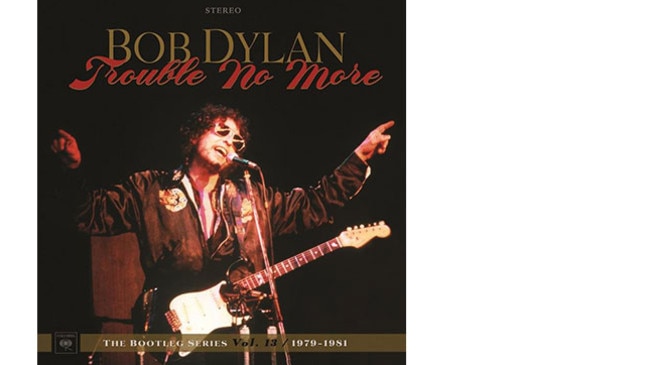
In 1979 Bob Dylan converted to Christianity and, boy, didn’t he want everybody to know. Even now, it is striking how publicly committed he was to being born again.
Curiously, these two discs (there is also an eight-CD version as well) show that, while his heart may have been filled with joy, most songs of the period were more about hectoring others about what they were doing wrong and the expected consequences if they kept living that way.
Because of this, or maybe it was simply that the counter-culture’s greatest spokesman had decided to join a church, this period of Dylan’s career was and has been largely derided or ignored.
This expansive re-evaluation mostly features tracks from his 1979-81 tours and shows that, while the world was looking away, much magic was happening. With one of his finest bands (based around studio greats Jim Keltner, Tim Drummond and Spooner Oldham), Dylan hit the road playing small theatres and featuring only spiritual material.
Almost all songs sound better here than their studio counterparts. Slow Train Coming, the title track to the first gospel album and cornerstone of the shows, is offered in two styles. In the first, the band plays a version that is somewhat faithful to the album. A more muscular take is found later, where the backing singers find a way to add a couple of playful “woo hoos” into the chorus.
Elsewhere, Keltner gives Gotta Serve Somebody a refreshing Bo Diddley beat and Solid Rock ends up in a Little Feat-inspired arrangement, driven by future Feat guitarist Fred Tackett and Steve Ripley. Great love songs Precious Angel and Covenant Woman are passion-filled, while Man Gave Names to All the Animals oozes reggaefied charm. What is obvious in every moment is Dylan’s absolute commitment to the material. He sings with greater conviction than at practically any point in his career.
As well as the released material, Dylan was filling the sets with new songs, many of them subsequently seemingly lost to time. On Ain’t Gonna Go to Hell for Anybody, Dylan turns a critical eye to his own failings. In doing so he delivers a lost masterpiece, as catchy as anything in his songbook. Pressing On features Dylan on piano and his small choir continually reworking a simple phrase (“I’m gonna keep pressing on to the higher calling of the Lord”).
Dylan, lost in the moment, sings as unselfconsciously as has ever been captured. In his true voice, he sings what is truly in his heart. A breathtaking moment for believers in Jesus and Dylan alike.
Polly Coufos
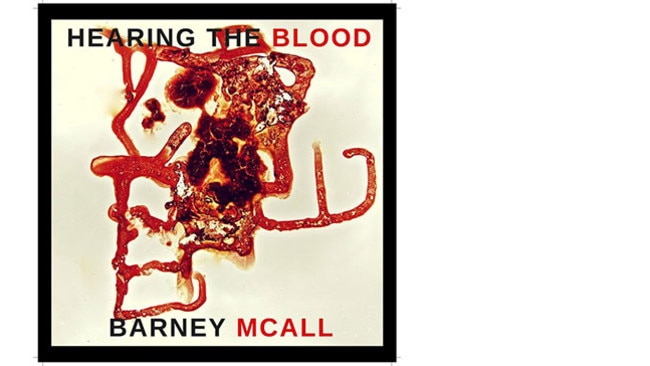
JAZZ
Hearing the Blood
Barney McAll
Extra Celestial Arts
4.5 stars
The spiritual beliefs of creative jazz musicians are fascinating. Think of Keith Jarrett’s Sufism, Chick Corea’s Scientology, and the spirituality that resulted in the Church of John Coltrane.
A deep spiritualism overhangs Hearing the Blood, the new album from Australian pianist Barney McAll. He finds his inspiration in blood, where he believes the spirit is located. “Blood does sing”, he writes, and blood from his own veins was used in the cover art. The music consists of nine McAll compositions, performed by nine musicians, the most prominent of whom, other than McAll (keyboards), are Jonathan Zwartz (bass), Hamish Stuart (drums and percussion), Mike Rivett (tenor sax) and Carl Morgan (guitar).
The album is enlivened by an eight-person choir on two tracks, where superb vocalist Gian Slater is lead voice. Add on two tracks the soul-tinged vocalist Daniel Merriweather, who contributed to the lyrics of Love is the Blood and That Which Provides, and you have a recipe for stirring gospel-tinged music filtered through a sophisticated jazz consciousness.
This is a compelling journey through the mind of one of our most talented musicians: in McAll’s superb writing and arranging many moods are explored.
In three ballads — Sorrow Horse, Nock Code and Recurring Dream of Invisible Fish — the gentle wistfulness in McAll’s acoustic piano improvisations, and his interaction with bassist Zwartz, are so beautiful they form the essential core of the album, along with luminous solos from guitarist Morgan in the latter two works. McAll, now 51, has entered the second half of his life with an enhanced vision, giving us music that is good for the soul.
Eric Myers
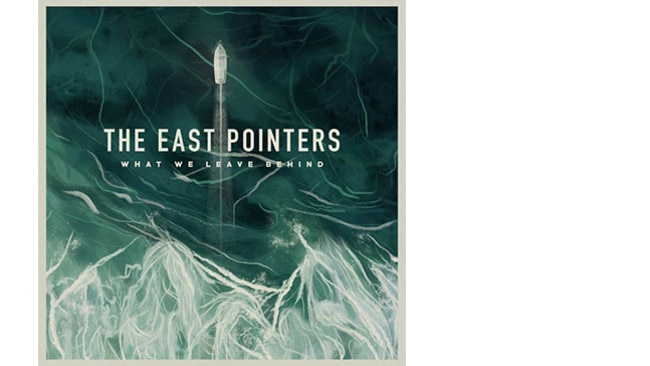
FOLK
What We Leave Behind
The East Pointers
Independent
4 stars
Back in Australia, after wowing audiences at WOMADelaide, Woodford and pretty well everywhere between on previous visits, Canadian trio the East Pointers are unlikely to leave with any unsold copies of their new album when they depart in January following a mega-date tour.
Produced by fellow Canuck east coaster and Grammy award-winning musician-songwriter Gordie Sampson, the trio’s eagerly awaited second long-player does not disappoint. It adroitly edges the young Prince Edward Island standard-bearers towards a more commercial pop-oriented sound without forfeiting their rich Celtic folk heritage.
Scottish-informed tunes range from the synth-backed air of the short title track, featuring Jake Charron’s poignant finger-picked guitar, to a foot-stomping fiddle and banjo romp, Party Wave, from the cousins Chaisson (Tim and Koady), inspired by a surfing adventure in New Zealand.
While predominantly acoustic, a couple of jig and reel-fuelled extravaganzas would out-doof any dance club anthem. Alternating with the instrumentals are songs as melodic as anything this side of Crowded House. Haunting backing vocals combined with layers of percussion, a plaintive banjo-picked figure and fiddle fills convey the terror of bushfires in a number co-written with Australian Liz Stringer (82 Fires). In other songs, the East Pointers draw on experiences closer to home. Delivered passionately by singer Tim Chaisson in upper register over effects-loaded fiddle and muted beats, Two Weeks alludes to members of isolated communities forced to live away from their families for lengthy periods to make a living.
Tony Hillier
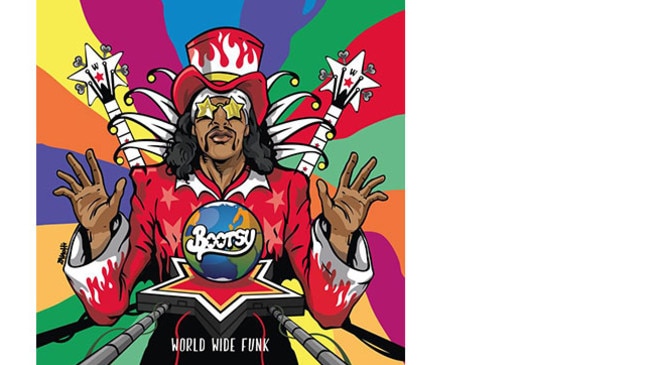
FUNK
World Wide Funk
Bootsy Collins
Mascot Records
3.5 stars
Since his first band the Pacesetters morphed into James Brown’s back-up band the JBs in the early 1970s, Bootsy Collins has been synonymous with funk.
Whether with George Clinton and Parliament Funkadelic, appearing on classics such as Deee-Lite’s Groove is in the Heart or via consistent solo work, the larger-than-life bassist, singer and bandleader has fashioned a style all his own.
So it’s no surprise what the follow-up to 2011 album Tha Funk Capital of the World contains. World Wide Funk sees R&B, funk and hip-hop worlds collide as Collins brings together established and up-and-coming names.
The title track opener featuring a spoken-word intro by Iggy Pop sets the scene, with Collins laying down an all-out party starter with a flurry of instrumentation. Bass-Rigged-System follows, with Collins playing alongside other bass legends including Victor Wooten, Stanley Clarke and Ivory Coast’s Manou Gallo.
Boomerang, featuring Nashville guitarist Justin Johnson, demonstrates how the contributions of younger artists have helped “open the mind” of Collins.
While it retains the omnipresent bass and Collins’s playful lyrical delivery, its “groovegrass” beat and bluesey feel signal an openness to experiment. Similarly, 24-year old Colombian-American singer Kali Uchis shines on Worth My While, as she trades lines with Collins on an epic slow jam and album standout, while Cincinnati singer Tyshawn Colquitt delivers a soulful performance amid soaring horns on the upbeat Snow Bunny. Elsewhere, Hi-On-Heels sees Snoop Dogg collaborate for a chugging slow groove.
Tim McNamara
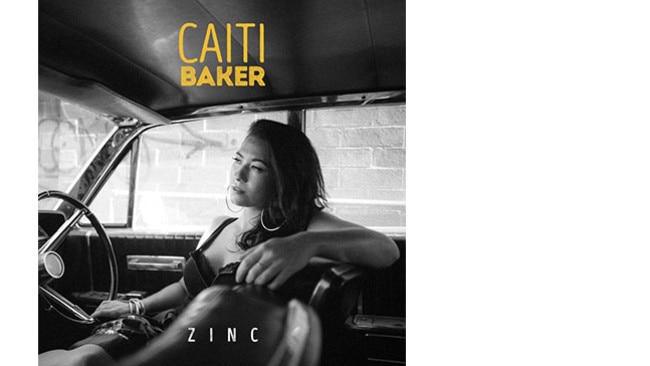
POP
Zinc
Caiti Baker
Perambulator/MGM
4 stars
Caiti Baker is a genuine one-off, whose startling musicality and originality embraces like a breath of fresh air. After lending her voice to indigenous hip-hoppers AB Original and electro-soulsters Sietta, the dynamic Darwin songstress has taken full ownership of the first album under her own name.
Baker’s lush, bluesy voice and left-field phrasing and arranging give her genre-zigzagging unmistakeable zip. While the musician’s zest for exploration takes later tracks over the top, Zinc’s opening cuts make high impact.
Built on bountiful beats, lusty guitar hooks, swirling keyboard washes and bold brass runs, her songs combine new jack swing and hip-hop with more venerable blues, soul and big band influences.
Blending gospel and swing, the ultra-catchy I Won’t Sleep, rhythmically at least, comes across as a Hit the Road Jack for the digital age, with Baker’s edgy lyrics expressing the transformation from youthful angst (“Never knew how lost I thought I could be / Until I wound up with a reflection that wasn’t me”) to a measure of self-assurance (“Haul me back in I’m ready to find my home / Haul me back in I know I’m not alone”).
Anxiety re-emerges in Could It Be Nerves, echoed by queries such as: “Why do I feel like this? / Why do the clouds roll in heavy?” A rap influence is inherent in the phrasing Baker employs in the ultra-busy I Got That, to the accompaniment of jazzy horn pushes and a complex drum rhythm. An affiliation with old-school blues underscores her sultry vocals above an organ bed in Believer, with flourishes of harmonica and brass in Over the Horizon.
Tony Hillier


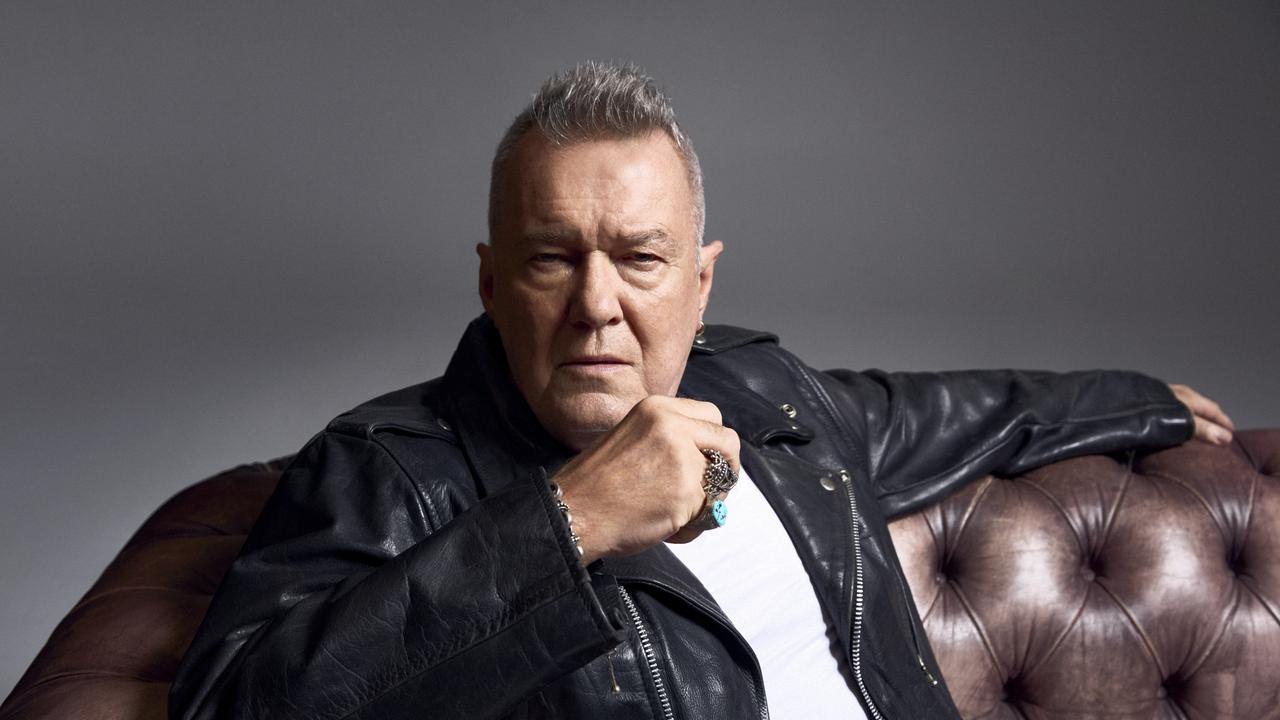
To join the conversation, please log in. Don't have an account? Register
Join the conversation, you are commenting as Logout